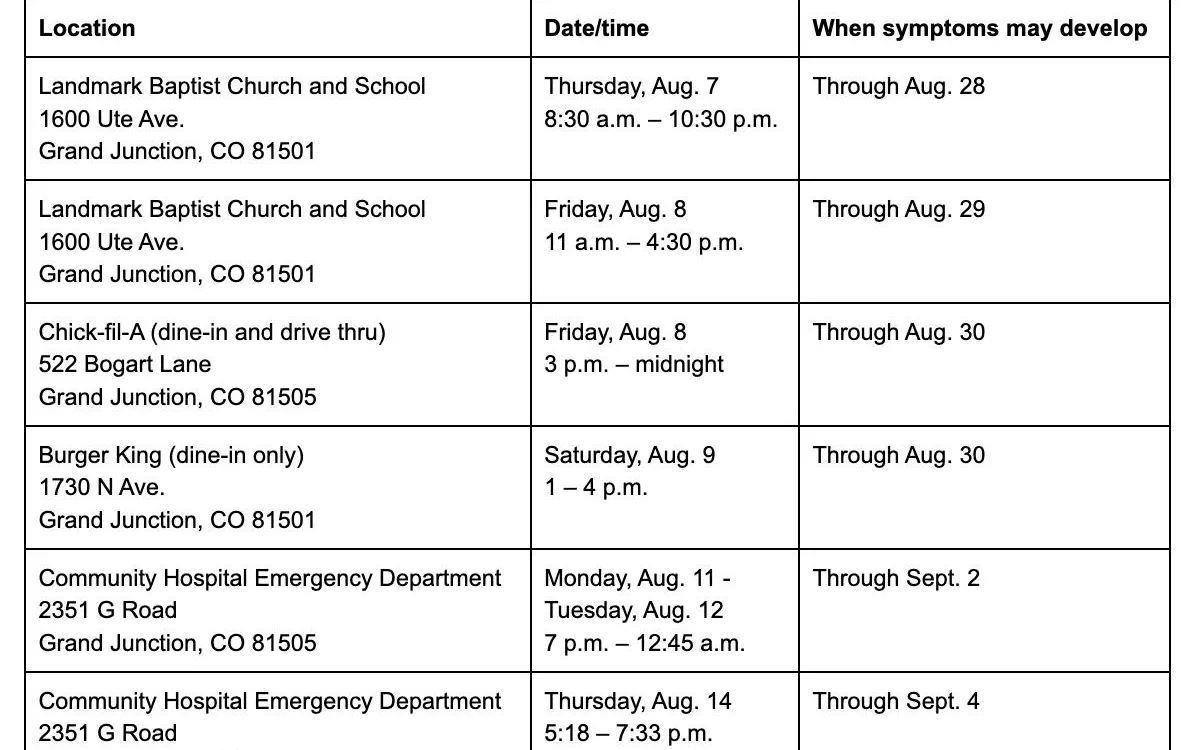
Health officials in Colorado are alerting residents of Mesa County about potential exposure to measles after an unvaccinated local resident contracted the disease. Notably, the patient appears to have acquired the infection within the community, raising concerns about community transmission in the Grand Junction area.
The Colorado Department of Public Health and Environment (CDPHE) released a statement on Friday afternoon, confirming that the new measles patient had not traveled outside the state or reported any connections to previously documented measles cases in Colorado. “The lack of a clear source of infection suggests that this case may be the result of community transmission in the Grand Junction area,” the CDPHE explained. The adult patient had not received the MMR vaccine (measles, mumps, rubella), which is critical in preventing these infectious diseases.
This recent case marks a significant addition to the statewide statistics, bringing the total number of measles cases in Colorado to 20 in 2025. Among these, 13 cases were reported in individuals who were either unvaccinated or whose vaccination status is unknown. Additionally, six cases involved patients who had previously received two or more doses of the MMR vaccine, while one case was identified as a breakthrough infection following a single dose.
The patient from Grand Junction was reported to have traveled extensively around the community while potentially contagious. The CDPHE provided a detailed chart indicating where and when individuals may have come into contact with the patient, covering dates from August 7 through August 14. Notable locations include the Grand Junction Community Hospital, Landmark Baptist Church, as well as popular fast-food establishments like Chik-fil-A and Burger King.
Residents who may have been present at these locations during the specified times are advised to limit their interactions with others for approximately 21 days to monitor for any symptoms of measles. Symptoms to watch for include fever, cough, runny nose, and red eyes, which are typically followed by a rash that begins on the face and spreads to other parts of the body.
Individuals who were exposed to the measles virus can still receive the MMR vaccine within 72 hours of exposure to help prevent the disease. This proactive measure can be crucial in curbing potential outbreaks.
If any residents of Mesa County develop symptoms consistent with measles, health officials strongly advise against visiting urgent care or emergency rooms without prior notification. Patients should contact their medical provider to learn about the best course of action to prevent exposing others to the virus.
In light of this situation, it is essential for the Mesa County community to remain vigilant and informed about measles and the importance of vaccination. The MMR vaccine is a proven defense against this highly contagious disease, and public health officials are working diligently to contain any further spread.